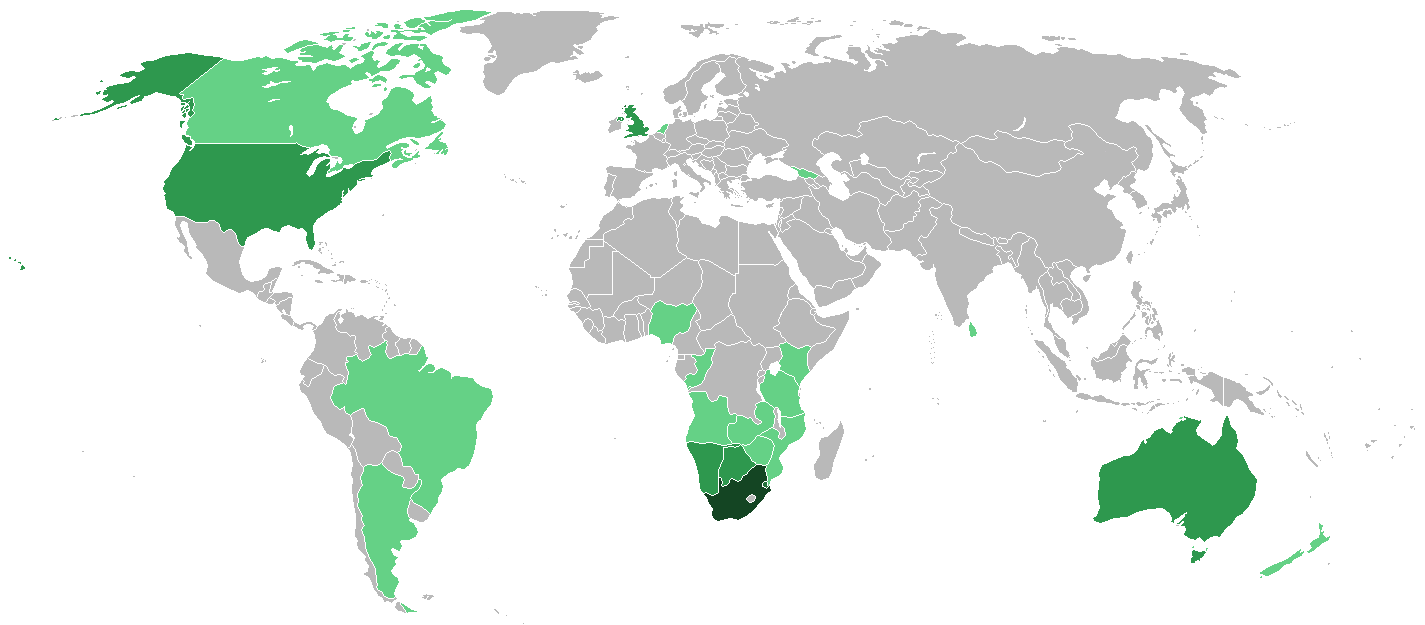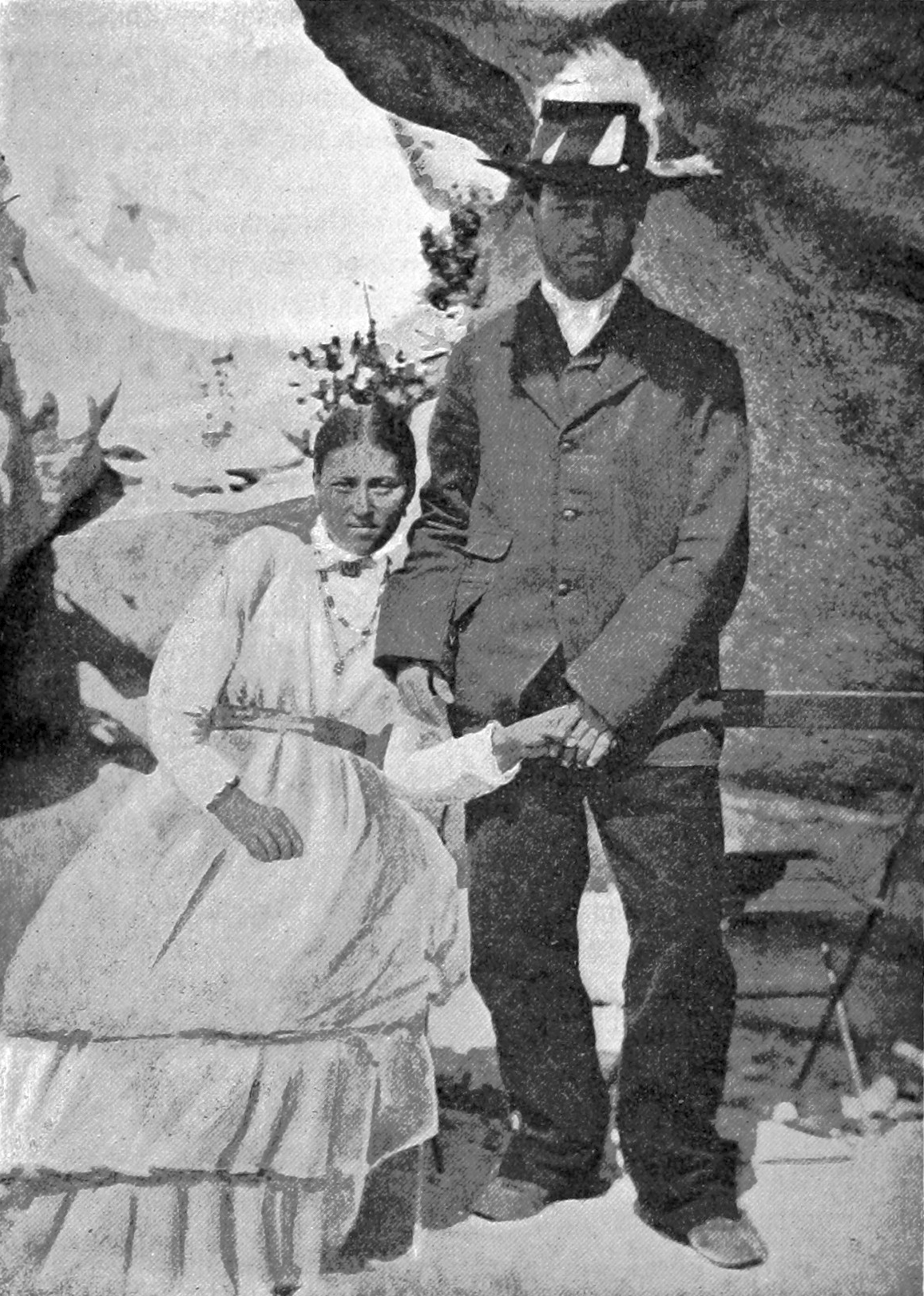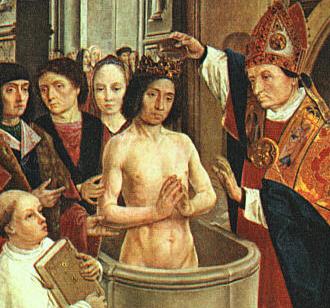|
Afrikaner People
Afrikaners () are a Southern African ethnic group descended from predominantly Dutch settlers who first arrived at the Cape of Good Hope in 1652.Entry: Cape Colony. ''Encyclopædia Britannica Volume 4 Part 2: Brain to Casting''. Encyclopædia Britannica, Inc. 1933. James Louis Garvin, editor. Until 1994, they dominated South Africa's politics as well as the country's commercial agricultural sector. Afrikaans, a language which evolved from the Dutch dialect of South Holland, is the mother tongue of Afrikaners and most Cape Coloureds. According to the South African National Census of 2022, 10.6% of South Africans claimed to speak Afrikaans as a first language at home, making it the country's third-largest home language after Zulu and Xhosa. The arrival of Portuguese explorer Vasco da Gama at Calicut, India, in 1498 opened a gateway of free access to Asia from Western Europe around the Cape of Good Hope. This access necessitated the founding and safeguarding of trade ... [...More Info...] [...Related Items...] OR: [Wikipedia] [Google] [Baidu] |
Dutch Republic
The United Provinces of the Netherlands, commonly referred to in historiography as the Dutch Republic, was a confederation that existed from 1579 until the Batavian Revolution in 1795. It was a predecessor state of the present-day Netherlands and the first independent Dutch people, Dutch nation state. The republic was established after seven Dutch provinces in the Spanish Netherlands Dutch Revolt, revolted against Spanish Empire, Spanish rule, forming a mutual alliance against Spain in 1579 (the Union of Utrecht) and declaring their independence in 1581 (the Act of Abjuration). The seven provinces it comprised were Lordship of Groningen, Groningen (present-day Groningen (province), Groningen), Lordship of Frisia, Frisia (present-day Friesland), Lordship of Overijssel, Overijssel (present-day Overijssel), Duchy of Guelders, Guelders (present-day Gelderland), lordship of Utrecht, Utrecht (present-day Utrecht (province), Utrecht), county of Holland, Holland (present-day North Holla ... [...More Info...] [...Related Items...] OR: [Wikipedia] [Google] [Baidu] |
Irreligion
Irreligion is the absence or rejection of religious beliefs or practices. It encompasses a wide range of viewpoints drawn from various philosophical and intellectual perspectives, including atheism, agnosticism, religious skepticism, rationalism, secularism, and non-religious spirituality. These perspectives can vary, with individuals who identify as irreligious holding diverse beliefs about religion and its role in their lives. Relatively little scholarly research was published on irreligion until around the year 2010. Overview Over the past several decades, the number of secular persons has increased, with a rapid rise in the early 21st century, in many countries. In virtually every high-income country and many poor countries, religion has declined. Highly secular societies tend to be societally healthy and successful. Social scientists have predicted declines in religious beliefs and their replacement with more scientific/naturalistic outlooks (secularizati ... [...More Info...] [...Related Items...] OR: [Wikipedia] [Google] [Baidu] |
Griqua People
The Griquas are a subgroup of mixed-race heterogeneous formerly-Xiri-speaking nations in South Africa with a unique origin in the early history of the Dutch Cape Colony. Text was copied from this source, which is available under a Creative Commons license. Like the Boers, they migrated inland from the Cape and in the 19th century established several states in what is now South Africa and Namibia. The Griqua consider themselves as being South Africa’s first multiracial nation with people descended directly from Dutch settlers in the Cape, and local peoples. History Griqua was the name given to a mixed-race culture in the Cape Colony of South Africa, around the 17th and 18th centuries (Taylor, 2020). They were also known as Hottentots before Europeans arrived in their lands where they lived as close-knit families. Griqua people’s multiple historical backgrounds have interwoven with rigid apartheid classification, academic attempts to fix the parameters of Griqua identity and ... [...More Info...] [...Related Items...] OR: [Wikipedia] [Google] [Baidu] |
Baster
The Basters (also known as Baasters, Rehobothers, or Rehoboth Basters) are a Southern African ethnic group descended from Cape Coloureds and Nama of Khoisan origin. Since the second half of the 19th century, the Rehoboth Baster community has been concentrated in central Namibia, in and around the town of Rehoboth. Basters are closely related to Afrikaners, Cape Coloureds, and Griquas of South Africa and Namibia, with whom they share a largely Afrikaner-influenced culture and Afrikaans language. Other groups of similar mixed ethnic origin, living chiefly in the Northern Cape, also refer to themselves as Basters. The name ''Baster'' is derived from "bastaard", the Dutch word for " bastard" or "mongrel". While some people consider this term demeaning, the Basters reappropriated it as an ethnonym, in spite of the negative connotation. Their 7th Kaptein is Jacky Britz, elected in 2021; he has no official status under the Namibian constitution. The Chief's Council of Rehoboth ... [...More Info...] [...Related Items...] OR: [Wikipedia] [Google] [Baidu] |
Cape Coloured
Cape Coloureds () are a South African group of Coloured people who are from the Cape region in South Africa which consists of the Western Cape, Northern Cape and the Eastern Cape. Their ancestry comes from the interracial mixing between the European, the indigenous Khoi and San, the Xhosa plus other Bantu people, indentured labourers imported from the British Raj, slaves imported from the Dutch East Indies, immigrants from the Levant or Yemen (or a combination of all). Eventually, all these ethnic and racial groups intermixed with each other, forming a group of mixed-race people that became known as the "Cape Coloureds". Demographics Although Coloureds represent only 8.15% of people within South Africa, they make up 42.1% of the population in the Western Cape, representing a plurality of the population of the province. (according to the 2022 South African census) They are generally bilingual, speaking Afrikaans and English, though some speak only one of these. ... [...More Info...] [...Related Items...] OR: [Wikipedia] [Google] [Baidu] |
Indo People
The Indo people (, ) or Indos are Eurasian people living in or connected with Indonesia. In its narrowest sense, the term refers to people in the former Dutch East Indies who held European legal status but were of mixed Dutch and Native Indonesians, indigenous Ethnic groups in Indonesia, Indonesian descent as well as their descendants today. In the broadest sense, an Indo is anyone of mixed European and Indonesian descent. Indos are associated with colonial culture of the former Dutch East Indies, a Dutch colony in Southeast Asia and a predecessor to modern Indonesia after its Proclamation of Indonesian Independence, proclamation of independence shortly after World War II. The term was used to describe people acknowledged to be of mixed Dutch and Indonesian descent, or it was a term used in the Dutch East Indies to apply to Europeans who had partial Asian ancestry. "Indos–people of Dutch descent who stayed in the new republic Indonesia after it gained independence, or who em ... [...More Info...] [...Related Items...] OR: [Wikipedia] [Google] [Baidu] |
German Namibians
German Namibians (; ) are a community of people descended from ethnic German colonists who settled in present-day Namibia. In 1883, the German trader Adolf Lüderitz bought what would become the southern coast of Namibia from Josef Frederiks II, a chief of the local Oorlam people, and founded the city of Lüderitz. The German government, eager to gain overseas possessions, annexed the territory soon after, proclaiming it German South West Africa (). Small numbers of Germans subsequently immigrated there, many coming as soldiers (), traders, diamond miners, or colonial officials. In 1915, during the course of World War I, Germany lost its colonial possessions, including South West Africa (see History of Namibia); after the war, the former German colony was administered as a South African mandate. Roughly half of the German settlers were allowed to remain and, until independence in 1990, German remained an official language of the territory alongside Afrikaans and Englis ... [...More Info...] [...Related Items...] OR: [Wikipedia] [Google] [Baidu] |
Flemish People
Flemish people or Flemings ( ) are a Germanic peoples, Germanic ethnic group native to Flanders, Belgium, who speak Flemish Dutch. Flemish people make up the majority of Belgians, at about 60%. ''Flemish'' was historically a geographical term, as all inhabitants of the medieval County of Flanders in modern-day Belgium, France and the Netherlands were referred to as "Flemings" irrespective of their ethnicity or language. The contemporary region of Flanders comprises a part of this historical county, as well as parts of the medieval Duchy of Brabant and the medieval County of Loon, where the modern national identity and Flemish culture, culture gradually formed. History The sense of "Flemish" identity increased significantly after the Belgian Revolution. Prior to this, the term "" in the Dutch language was in first place used for the inhabitants of the former County of Flanders. Flemish, however, had been used since the 14th century to refer to the language and dialects of both ... [...More Info...] [...Related Items...] OR: [Wikipedia] [Google] [Baidu] |
Frisians
The Frisians () are an ethnic group indigenous to the German Bight, coastal regions of the Netherlands, north-western Germany and southern Denmark. They inhabit an area known as Frisia and are concentrated in the Dutch provinces of Friesland and Groningen (province), Groningen and, in Germany, East Frisia and North Frisia (which was a part of Denmark until 1864). The Frisian languages are spoken by more than 500,000 people; West Frisian language, West Frisian is officially recognised in the Netherlands (in Friesland) while North Frisian language, North Frisian and Saterland Frisian language, Saterland Frisian are recognised as regional languages in Germany. Name There are several theories about the origin of the name of the Frisians, which is derived from ''Frisii'' or ''Fresones'', names used by the Romans to describe a Germanic tribe that inhabited the same region but disappeared during the 5th century before the appearance of the Frisians. Most probably the name is derived ... [...More Info...] [...Related Items...] OR: [Wikipedia] [Google] [Baidu] |
French People
French people () are a nation primarily located in Western Europe that share a common Culture of France, French culture, History of France, history, and French language, language, identified with the country of France. The French people, especially the native speakers of langues d'oïl from northern and central France, are primarily descended from Roman people, Romans (or Gallo-Romans, western European Celts, Celtic and Italic peoples), Gauls (including the Belgae), as well as Germanic peoples such as the Franks, the Visigoths, the Suebi and the Burgundians who settled in Gaul from east of the Rhine after the fall of the Roman Empire, as well as various later waves of lower-level irregular migration that have continued to the present day. The Norsemen also settled in Normandy in the 10th century and contributed significantly to the ancestry of the Normans. Furthermore, regional ethnic minorities also exist within France that have distinct lineages, languages and cultures such ... [...More Info...] [...Related Items...] OR: [Wikipedia] [Google] [Baidu] |
Dutch People
The Dutch, or Netherlanders (Dutch language, Dutch: ) are an ethnic group native to the Netherlands. They share a common ancestry and culture and speak the Dutch language. Dutch people and their descendants are found in migrant communities worldwide, notably in Argentina, Aruba, Australia, Brazil, Canada,Based on Statistics Canada, Canada 2001 Census]Linkto Canadian statistics. Caribbean Netherlands, Curaçao, Germany, Guyana, Indonesia, New Zealand, Sint Maarten, South Africa, Suriname, and the United States.According tFactfinder.census.gov The Low Countries were situated around the border of France and the Holy Roman Empire, forming a part of their respective peripheries and the various territories of which they consisted had become virtually autonomous by the 13th century. Under the Habsburgs, the Netherlands were organised into a single administrative unit, and in the 16th and 17th centuries the Northern Netherlands gained independence from Spain as the Dutch Republic. The ... [...More Info...] [...Related Items...] OR: [Wikipedia] [Google] [Baidu] |
White Namibians
White Namibians ( or ) are people of European descent settled in Namibia. The majority of White Namibians are Dutch-descended Afrikaners (locally born or of White South African descent), with a minority being native-born German Namibians (descended from Germans who colonised Namibia in the late-nineteenth century). There are also some Portuguese and English immigrants. 53,773 Namibians identified as White in the 2023 census, representing 1.8% of the population of Namibia. Distribution The vast majority of White Namibians live in major cities and towns in central or southern Namibia. Windhoek has by far the largest White population, and Whites are a majority in the coastal city of Swakopmund. Other coastal cities, such as Walvis Bay and Lüderitz, also have large White communities. In general, most of Namibia south of Windhoek has a high proportion of Whites, while central Namibia has a high concentration of Blacks. Apart from Windhoek, coastal areas and Southern Namibi ... [...More Info...] [...Related Items...] OR: [Wikipedia] [Google] [Baidu] |









